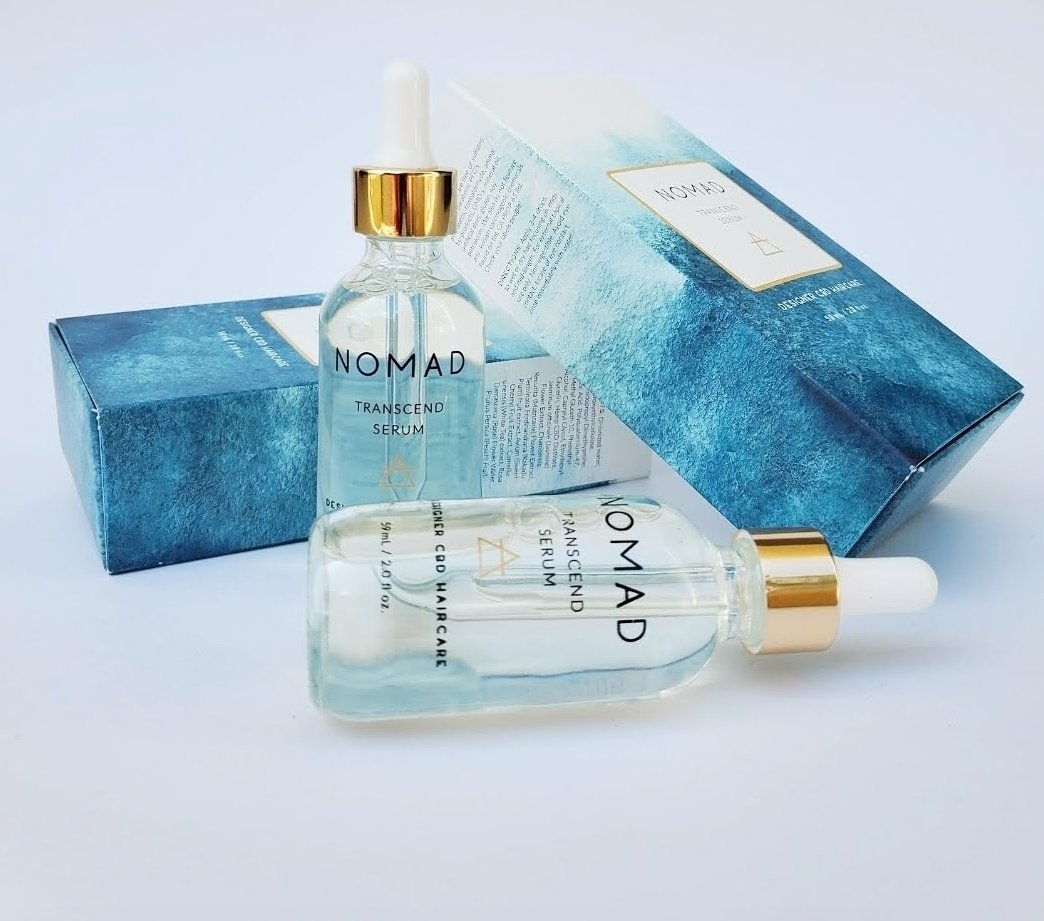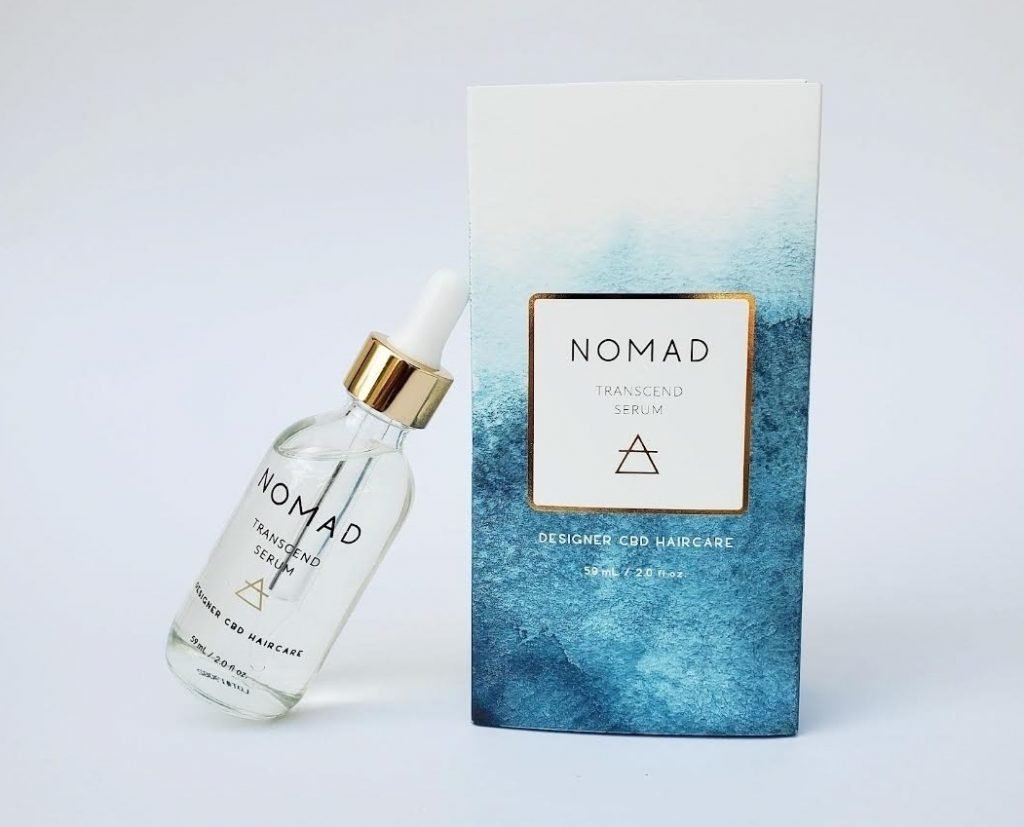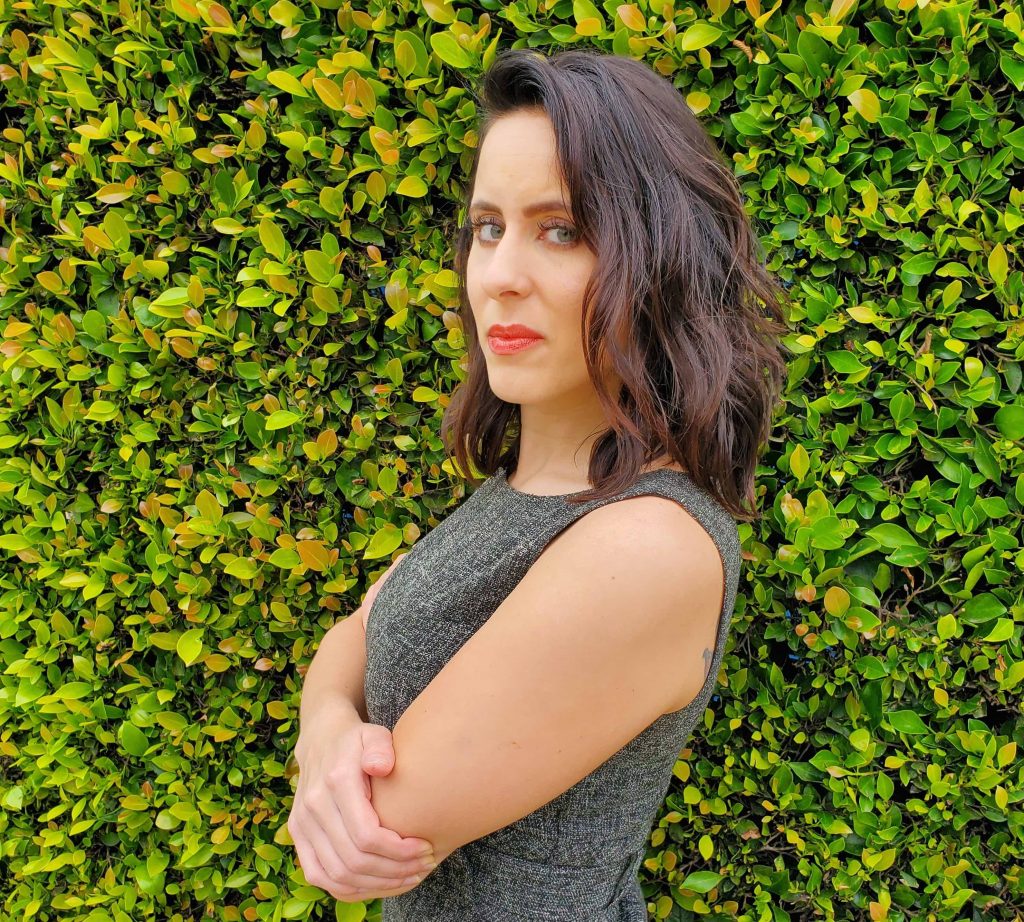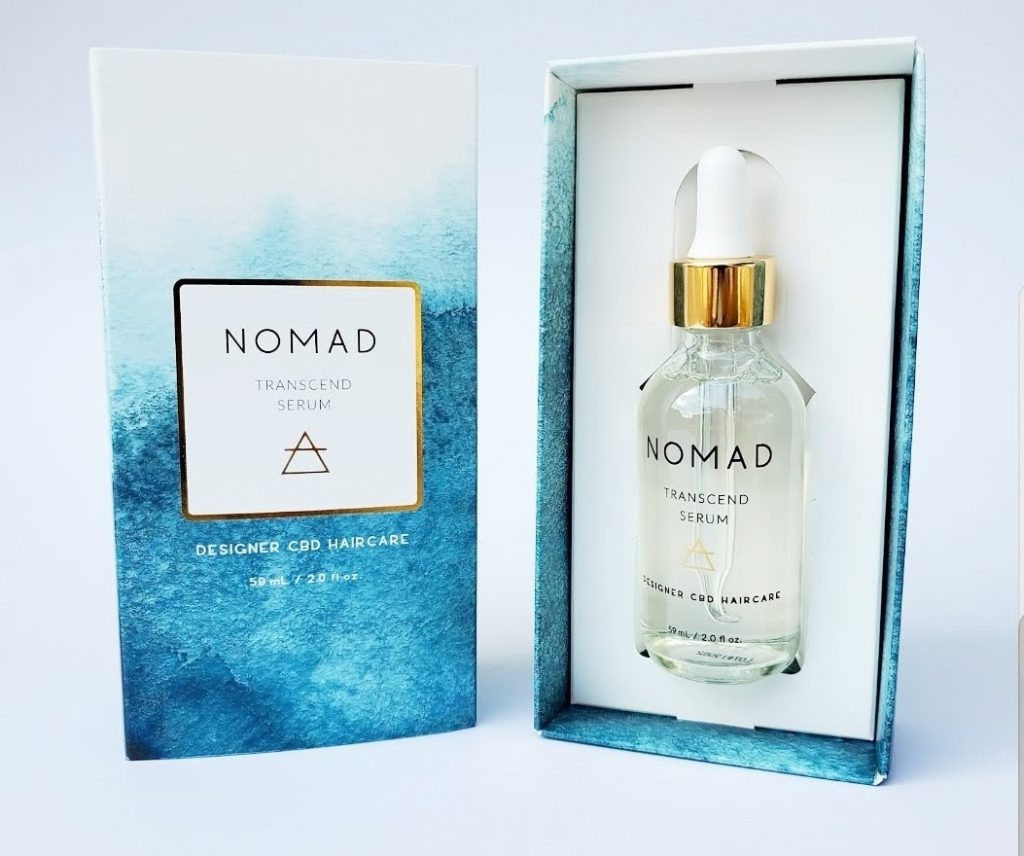
Tired Of Dealing With Skin Irritation From Silicones, Hairstylist Jen Fassino Created A CBD Haircare Brand Without Them
In the many months since the CBD beauty and personal care craze took off, a handful of brand narratives have become familiar.
There’s the backstory of a founder whose passion for cannabidiol was stoked by its anxiety relief. Another rendition focuses on physical rather than emotional pain. There are entrepreneurs sensing opportunities to make cannabis products look mainstream for big box stores, super upscale for luxury retailers and Instagrammable for digital commerce, or to fill other significant niches within beauty and personal care like period merchandise or K-Beauty. While all the origin tales may be perfectly valid, it becomes difficult to distinguish them as they multiply.
Amid the sameness, a CBD brand with a different history stands out. Nomad is such a brand. Its path to fruition stretches back a dozen years, when founder and hairstylist Jen Fassino started doing hair in her native Eau Claire, Wis., a city with less than 66,000 people 90 miles from Minneapolis known for a low crime rate and excellent schools. To her dismay, Fassino’s skin began to react badly to the haircare she applied on her salon clients. She couldn’t identify the culprit until a professor client loaned her chemistry books to figure it out. After extensive study and the process of elimination, Fassino discovered silicones were the source of her problem.

In her private beauty stash, Fassino went silicone-free, and the change improved her skin. But she can’t avoid the ingredient completely in her professional capacity. On the job, Fassino says, “I break out still. I have to wash my hands constantly and, sometimes, I have to wear gloves.” With silicones ubiquitous in haircare formulations, she embarked on a quest to find an alternative ingredient that could deliver on silicones’ coveted slip while not instigating her skin issues. CBD proved to be an adept alternative, and it became the basis for Nomad’s products.
“The CBD distillate in Nomad comes in a honeycomb texture. It has a thick consistency, and it gives the product a thicker viscosity. It’s a thickening agent that mimics the glass-like texture of silicone.”
“Silicone is made from sand, and it has a glass-like smooth texture, but also has a plasticky texture that sits on the surface of the hair. Silicones feel good, but they aren’t good for you,” she says, speaking from her experience, although silicones are widely understood not to imperil human health. “The CBD distillate in Nomad comes in a honeycomb texture. It has a thick consistency, and it gives the product a thicker viscosity. It’s a thickening agent that mimics the glass-like texture of silicone.”
The CBD with the sensation right for Nomad wasn’t easy to pin down. Fassino spent around eight months and rejected about 12 vendors before settling on the distillate in the brand’s debut product, Transcend Serum. Nomad has created a shampoo and conditioner, too, but Fassino stuck with the serum for its premiere to hold back on having to invest in launching a trio of products at once. She poured some $16,000 into readying the $54 serum for release. In Nomad’s first year in business, Fassino’s revenue objective is for the brand to cross into the six figures.

The CBD acts as a silicone substitute in Nomad’s serum, but Fassino praises it for moisturizing hair and fending off environmental damage as well. In the product, it’s combined with an array of natural ingredients, including chamomile, white tea, kakadu plum, peach, geranium and sweet cherry extracts, rose water and lactic acid. Every ingredient in it scores a one or two on the Environmental Working Group’s Skin Deep Cosmetics Database rankings of chemical hazards, safety measures that are crucial to Fassino, a proponent of clean beauty.
“I’m a firm believer in green beauty and that products will have to adhere to a higher standard in the near future. I want to set my brand apart with products that perform and are good for you.”
“The main purpose of the hair serum or the oil is to act as a treatment to help mend broken ends, combat frizz and speed up drying time,” she says. “The main way to use it is on wet hair to protect from heat and add shine. You can blow dry-or air-dry after that. In the salon, stylists have been really liking the texture it provides for blowouts. It produces a softer shine.”
The serum is housed in a custom cardboard box with a matte finish constructed from 75% recycled materials. On the box is a blue water color illustration resembling waves. Nomad’s logo containing a gold triangle with line through it, which is the alchemical symbol for air, joins the water color illustration on the box. The brand’s name refers to Fassino—she moved from Eau Claire to Los Angeles four years ago to put her career and brand in a better position to thrive—and adventurous people like her. “The older I get, I’m growing and changing, exploring and taking chances,” says the 34-year-old. “You only live once, so it’s important to get everything you can out of life.”

For distribution, Fassino aims to place Nomad in premium salons with an interest in clean beauty. Ultimately, Sephora is a dream retail partner for the brand. In addition to the shampoo and conditioner, Nomad has a mask and salt spray in the pipeline. Fassino says, “When you go to a salon, and you see the Paul Mitchell’s and Redken’s, they blend together and become very generic. I’m a firm believer in green beauty and that products will have to adhere to a higher standard in the near future. I want to set my brand apart with products that perform and are good for you.”





Leave a Reply
You must be logged in to post a comment.